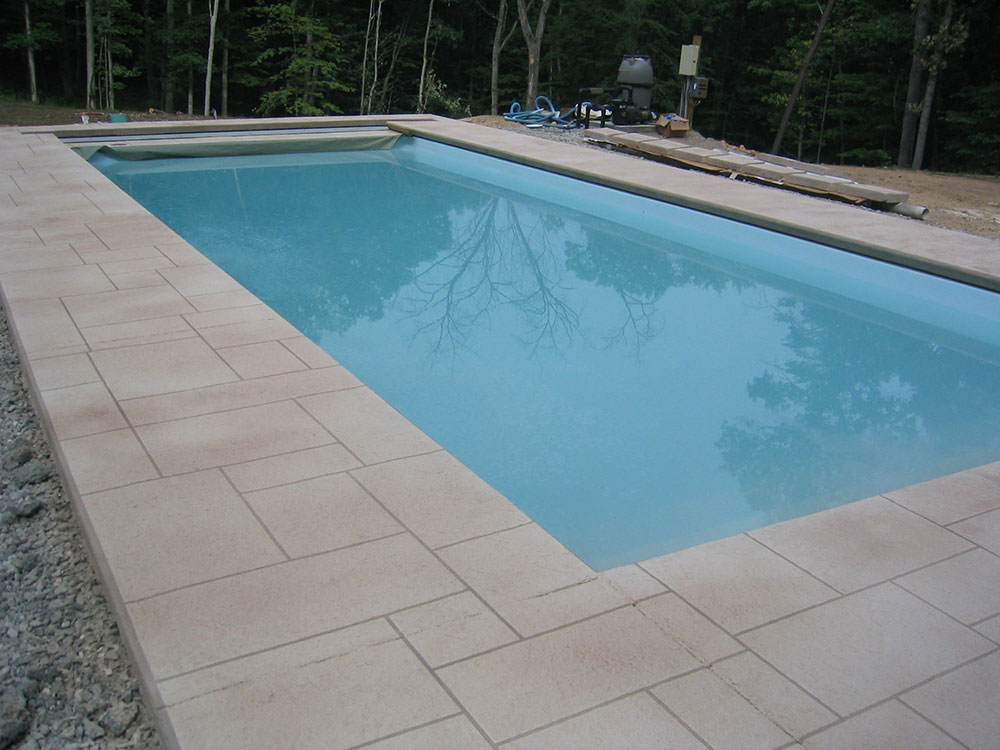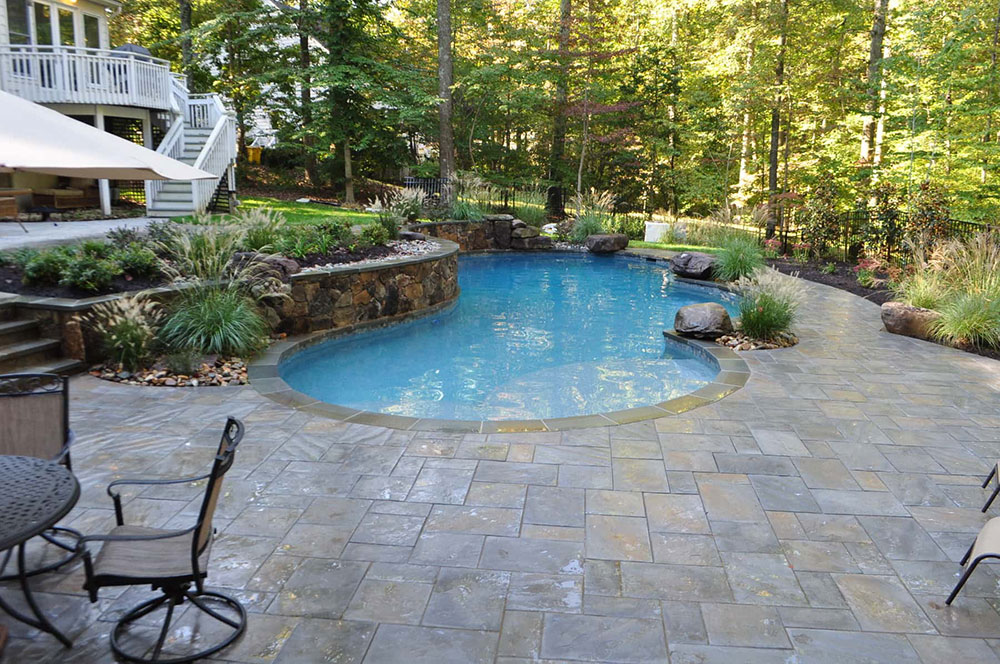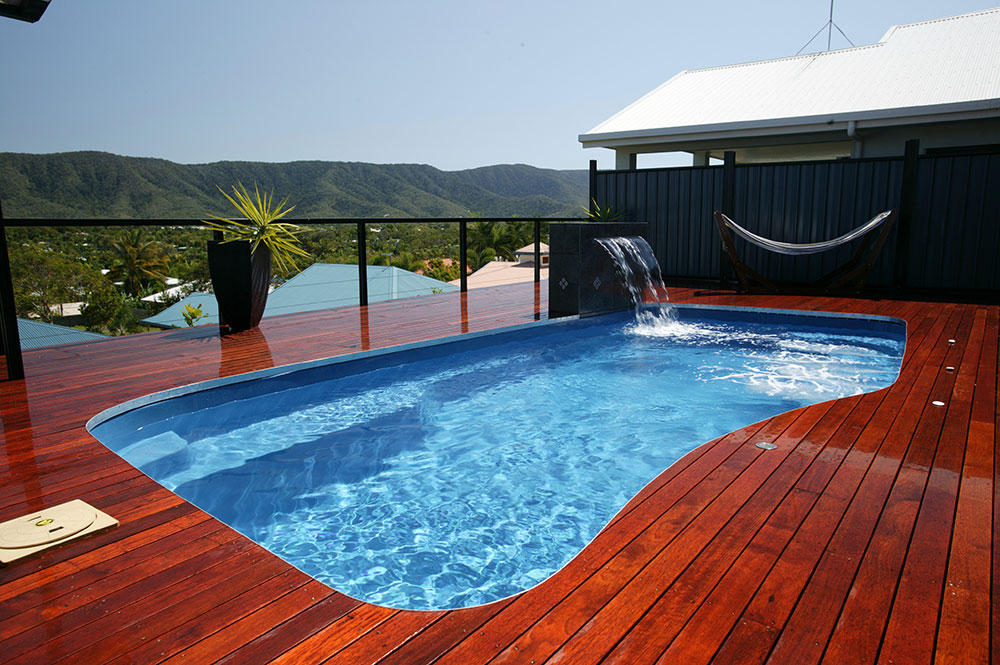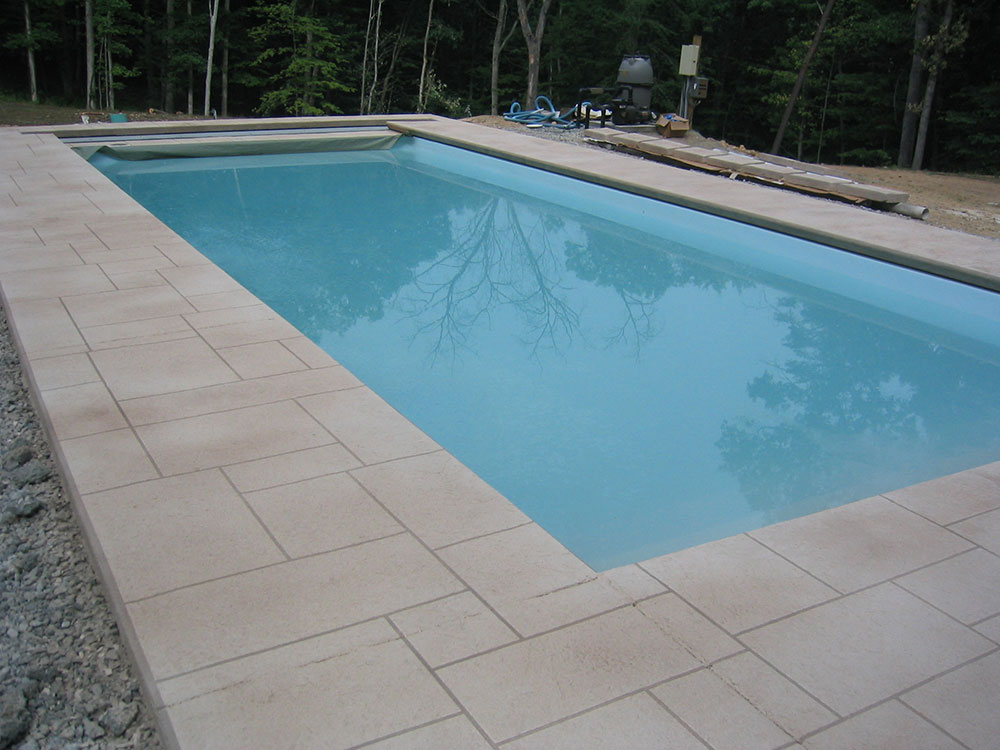Having a pool area at home is like having a personal oasis right in your garden. That’s when the pool and deck are in great shape.
Whether you’re building a deck or renovating what you currently have, it’s important to choose the right material that best suits your needs.
Now there are many material options so don’t assume that choosing will be easy. Each has its features that may be exactly what you are looking for. Here you can see the pros and cons of the most popular pool deck materials.
concrete

Using Concrete for pool deck edging Projects have always been a popular choice for as long as anyone can remember. Here are the pros and cons:
advantages
- It’s durable and long-lasting when properly installed and maintained
- Concrete is one of the cheapest materials ever
- This material is great for custom pool decks because it is very versatile. It can be stamped, stained, engraved and more
- It can be repaired and restored.
disadvantage
- Concrete is very porous and therefore needs a good seal
- It needs to be textured or stamped to increase the slip resistance
Pavers
This material is popular for tough landscapes like patios, walkways, pool decks, and more.
advantages
- Paver pool decks are easy to repair as you only replace the damaged parts with new ones
- It’s an affordable material
- It comes in a variety of colors, shapes, and sizes
- Permeable interlocking paving stones, a type of paving stone, allow water to pass through and are perfect for pool decks
disadvantage
- Must be installed by a professional
- It requires a permanent frame or border to keep parts from shifting
- The installation takes a long time
Travertine
This is a type of limestone that comes in tile form and has a variety of subtle earth tones.
advantages
- It’s a pretty stylish type of natural stone and easily goes with an outdoor pool
- Travertine is a very tough and durable material
- It can be repaired in the event of damage
disadvantage
- Travertine requires a complicated maintenance routine to maintain its appearance and downplay its porosity
- It’s a heavy material, which makes installation a little difficult
- This stone tile is expensive to install, especially since it requires mortar and glue
stone

There is a wide variety of types of stone that can be used on pool decks such as sandstone, limestone, and granite.
advantages
- Stone has this natural look that is stylish and elegant
- It’s durable and long lasting
- The surface is naturally structured and therefore a suitable non-slip material for a pool deck
- The shape and size can be customized
disadvantage
- Not all types of stones are available everywhere.
- It’s an expensive material, especially if it has to be ordered and shipped from a different location.
Wood

Wooden pool decks are popular for both nearby decks and above-ground swimming pools.
Advantages:
- Wood comes in a wide range of colors, patterns and types
- It is a comfortable material for walking and lying down.
disadvantage
- It requires seasonal maintenance, especially since it is located next to a pool of water
- Wood can be slippery if not sealed with some fine aggregate to improve slip resistance
- It can be very expensive depending on the type of wood you choose
Brick
This material has been tested for over 5,000 years and has proven ideal for outdoor use.
advantages
- Brick is a durable and long-lasting material
- Although it is known for its terracotta color, it is available in other shades
disadvantage
- Bricks tend to stunt moss growth, so regular cleaning and maintenance is required
- It is slippery when wet
Choosing a pool decking material is easy once you know what you’re looking for. In addition to appearance, it is also important to consider safety, cost, and ease of maintenance. All of these should fit your lifestyle perfectly while enhancing the quality of your pool experience.
 Flower Love
Flower Love
